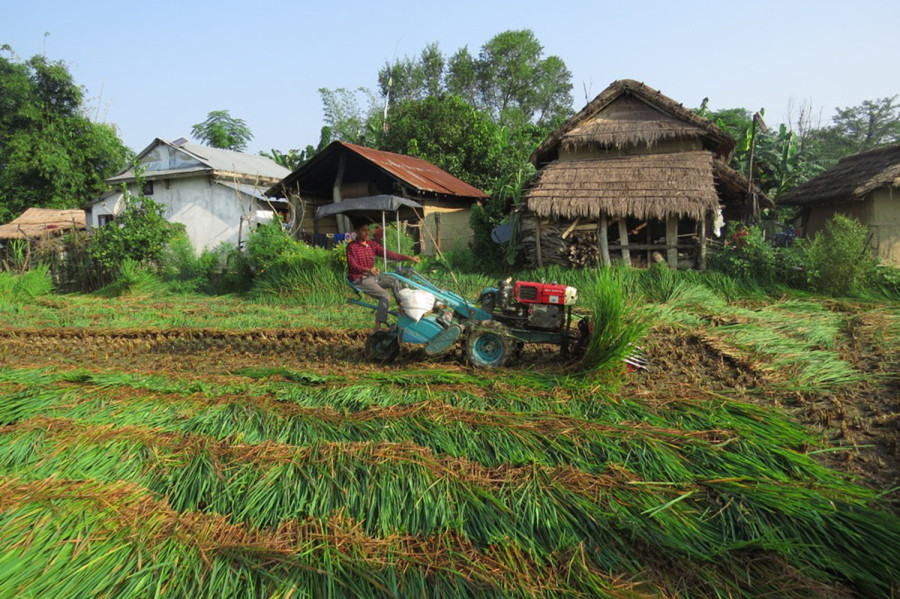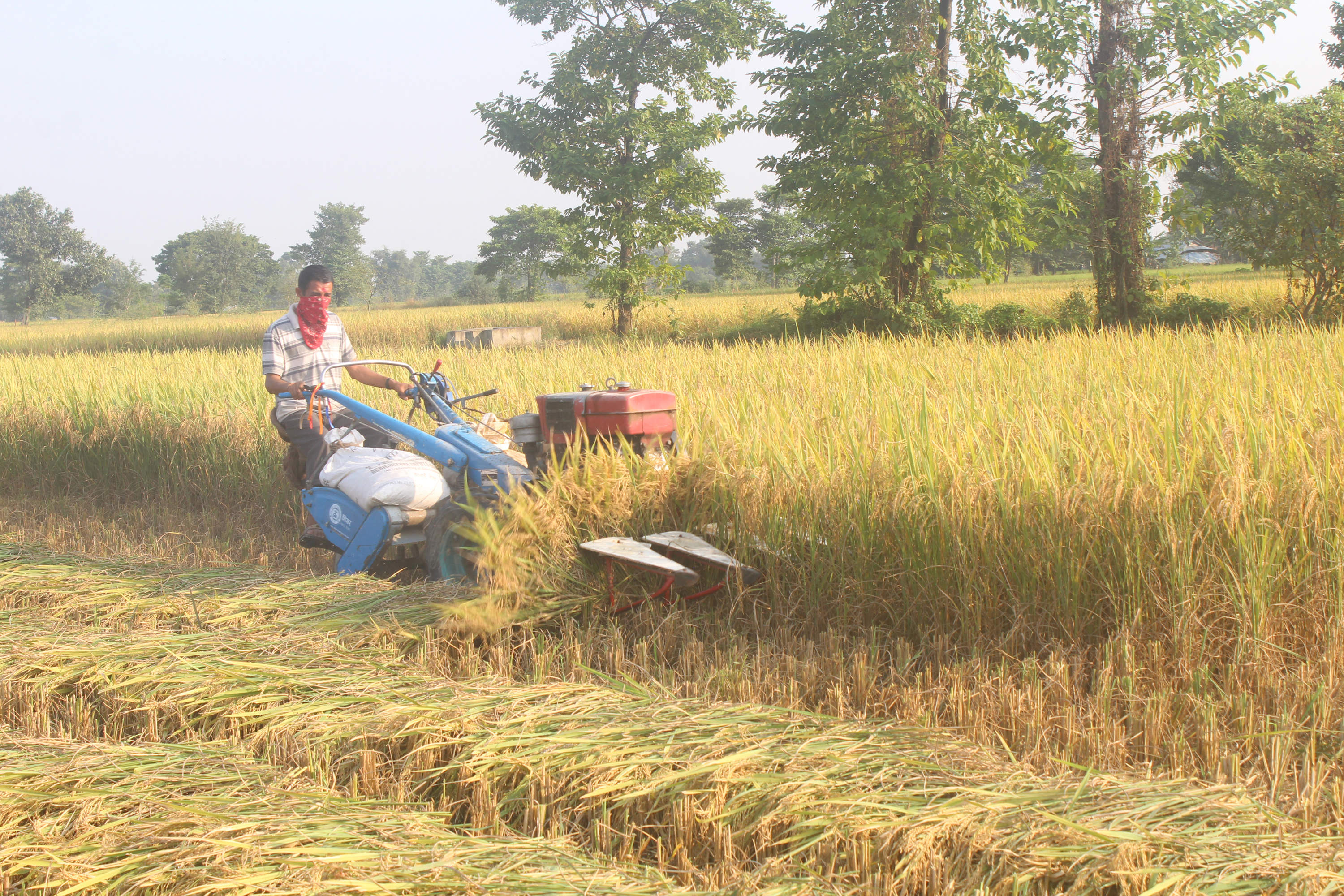Money
Tarai farmers face crop failure due to fake paddy seeds
The Garima variety of seeds sold to farmers in Kailali and Kanchanpur produced only empty grains.
Bhawani Bhatta
Bhandari established her plants in the first week of June using the Garima variety of paddy seeds. Introduced in Nepal five years ago, this hybrid paddy variety became popular among farmers because of its high yield ranging from 5.8 tonnes to 6.3 tonnes per hectare.
The rice grain is slender and consumers like it, leading to growing demand in the market. But this year, Garima was a massive letdown. In many districts, the rice plants only produced empty grains, according to Yubak Dhoj GC, secretary at the Ministry of Agriculture and Livestock Development.
An investigation carried out by the ministry revealed that the seed dealer had sold fake Garima brand paddy seeds to farmers during the planting season. A preliminary study showed that Garima planted on 1,404 hectares produced empty grains.
The government fact-finding team found that the Garima seeds supplied to farmers this year were fake as they failed genetic testing, also known as DNA testing with the original variety.
The most affected districts were Chitwan, Kailali, Banke and Bardia. According to a government report, the supplier had imported 34 tonnes of Garima seeds and sold 23 tonnes, including 13 tonnes in Chitwan.

Bhandari's problem is that if she waits for her paddy plants to ripen, she will be late sowing her next crop, wheat. And she is not sure if the paddy plants will produce grains at all.
“The standing paddy plants have also suffered from pest attacks. I don’t know what to do, to harvest the crops or not,” she said. “Some of the plants have grains,” said Bhandari, who is still optimistic that the plants will produce grains. She has planted Garima on two bighas of land.
Like Bhandari, many farmers in Kailali and Kanchanpur don't know what to do. Ram Chandra Bhatta, chief of the Agriculture Knowledge Centre in Kanchanpur, said the Garima paddy plants had entered the flowering stage, and that it was too late to do anything.
“They will not produce grains. The plant will also be affected by pests now. As the temperature drops, the plants will not get sunlight. This will affect productivity significantly,” he said.
More than 700 hectares of paddy fields have been affected in the far western districts of Kailali and Kanchanpur due to fake seeds. In Kailali, Garima has been planted on 818 hectares, according to the statistics of the centre.
The most affected region is Bardagoria Rural Municipality where the variety has been planted on 260 hectares. In Ghodaghodi Municipality, Garima was planted on 121 hectares.
“Around 1,708 farmers in the two districts have been hit by the fake seeds,” said Bhatta. He said that the centre was collecting data and information about the seed suppliers. “After that, we will proceed to take action against them. We have also started the process of collecting complaints from affected farmers.”
The law says that the suppliers of hybrid seeds should compensate the farmers if their crops fail.




 9.83°C Kathmandu
9.83°C Kathmandu















